
Cancun: A Tropical Paradise on the Yucatan Peninsula
Nestled on the northeastern coast of Mexico's Yucatan Peninsula, Cancun is a premier tourist destination famous for its stunning white-sand beaches, crystal-clear turquoise waters, and vibrant nightlife. This tropical paradise offers a perfect blend of relaxation and adventure, making it an ideal spot for both sunseekers and thrill enthusiasts. Cancun is divided into two main areas: the bustling Hotel Zone and the more traditional downtown, also known as El Centro. The Hotel Zone is a strip of luxury resorts, restaurants, and shopping centers set against the backdrop of the sparkling Caribbean Sea. Here, visitors can indulge in water sports, explore underwater reefs, or simply unwind on the pristine beaches. El Centro, on the other hand, offers a more authentic Mexican experience with its local markets, eateries, and cultural landmarks. Beyond the beaches, Cancun boasts a rich history and culture. Just a short drive away are the ancient Mayan ruins of Tulum and Chichen Itza, offering a glimpse into the region's fascinating past. For nature lovers, the nearby cenotes—natural sinkholes filled with freshwater—provide a unique and refreshing swimming experience. With its diverse attractions and warm hospitality, Cancun promises an unforgettable vacation for every traveler.
Local tips in Cancun
- Visit during the shoulder seasons (April to June or September to November) to avoid the crowds and enjoy better rates.
- Use pesos instead of dollars for better exchange rates when shopping or dining locally.
- Stay hydrated and apply sunscreen frequently, as the tropical sun can be intense.
- Explore the local cuisine, especially seafood dishes and traditional Yucatecan food.
- Book tours to popular sites like Chichen Itza and Tulum in advance to secure your spot and avoid long lines.
- Use public transportation or shared shuttles to get around the Hotel Zone and downtown Cancun efficiently.
- Don't miss a visit to Isla Mujeres, a charming island just a short ferry ride away from Cancun.
Neighbourhoods in Cancun
Cancun: A Tropical Paradise on the Yucatan Peninsula
Nestled on the northeastern coast of Mexico's Yucatan Peninsula, Cancun is a premier tourist destination famous for its stunning white-sand beaches, crystal-clear turquoise waters, and vibrant nightlife. This tropical paradise offers a perfect blend of relaxation and adventure, making it an ideal spot for both sunseekers and thrill enthusiasts. Cancun is divided into two main areas: the bustling Hotel Zone and the more traditional downtown, also known as El Centro. The Hotel Zone is a strip of luxury resorts, restaurants, and shopping centers set against the backdrop of the sparkling Caribbean Sea. Here, visitors can indulge in water sports, explore underwater reefs, or simply unwind on the pristine beaches. El Centro, on the other hand, offers a more authentic Mexican experience with its local markets, eateries, and cultural landmarks. Beyond the beaches, Cancun boasts a rich history and culture. Just a short drive away are the ancient Mayan ruins of Tulum and Chichen Itza, offering a glimpse into the region's fascinating past. For nature lovers, the nearby cenotes—natural sinkholes filled with freshwater—provide a unique and refreshing swimming experience. With its diverse attractions and warm hospitality, Cancun promises an unforgettable vacation for every traveler.
When is the best time to go to Cancun?
Iconic landmarks you can’t miss
Parque de las Palapas
Discover the vibrant spirit of Cancun at Parque de las Palapas, a perfect city park blending culture, food, and relaxation in a beautiful setting.
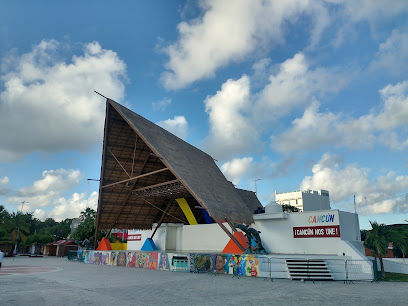
Museo Maya de Cancún y Zona Arqueológica de San Miguelito
Explore the rich history of the Mayan civilization at Museo Maya de Cancún, featuring stunning exhibits and archaeological wonders in the heart of the Hotel Zone.
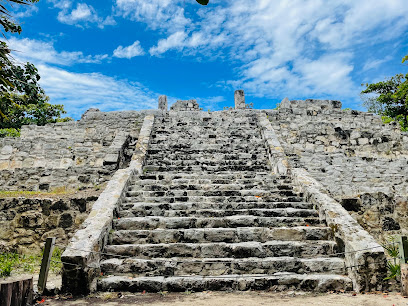
Interactive Aquarium Cancún
Explore the vibrant marine life at Interactive Aquarium Cancún, where education meets entertainment in an unforgettable aquatic experience.
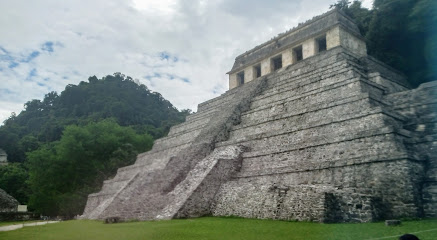
Captain Hook Cancun
Experience the adventure and culinary delights of Captain Hook Cancun, where pirate shows and stunning ocean views create unforgettable memories.
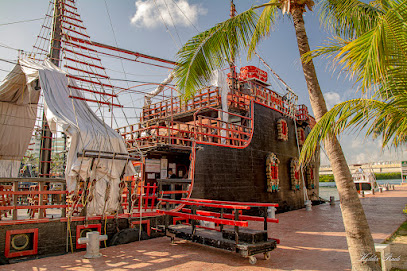
Parque Ecológico Kabah
Experience the tranquility and biodiversity of Parque Ecológico Kabah, Cancun's premier ecological park, where nature and adventure await.
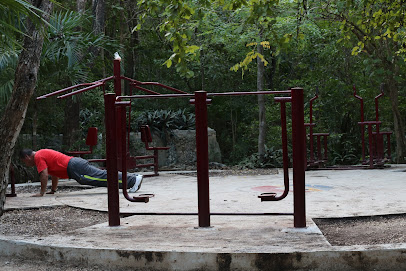
El Rey Archaeological Zone
Discover the captivating ruins of El Rey Archaeological Zone, a hidden gem in Cancun's Hotel Zone showcasing the rich heritage of the ancient Mayan civilization.
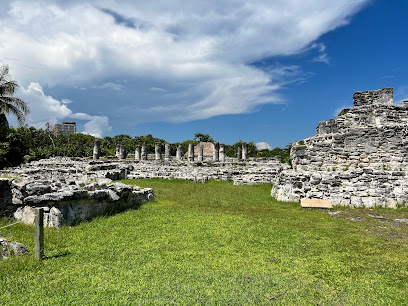
Torre Escénica del Embarcadero de Cancún
Discover breathtaking 360-degree views of Cancun's coastline and the Caribbean Sea at the Torre Escénica del Embarcadero, an unforgettable tourist attraction.
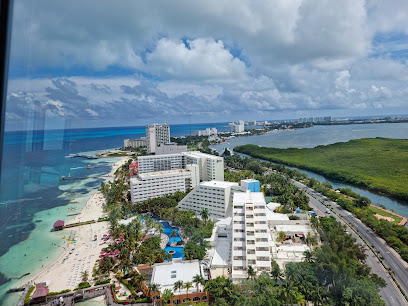
Parque El Crucero
Experience the serene beauty of Parque El Crucero, a lush park in Cancun perfect for relaxation, picnics, and immersing in nature's tranquility.
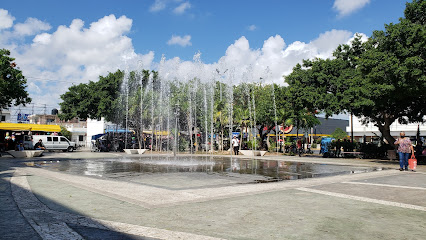
Catedral de Cancún (La Santa Cruz y de la Santísima Trinidad)
Discover the serene beauty and cultural significance of Catedral de Cancún, a must-visit landmark for tourists seeking spiritual and architectural inspiration.
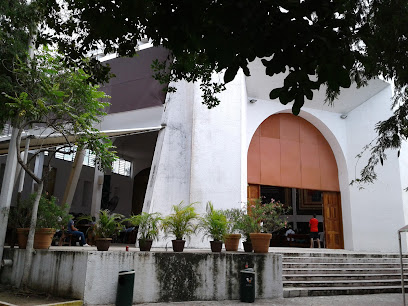
Punta Cancun LightHouse
Experience the breathtaking views and rich history at Punta Cancun Lighthouse, an iconic landmark in Cancun's Hotel Zone that captivates every tourist.
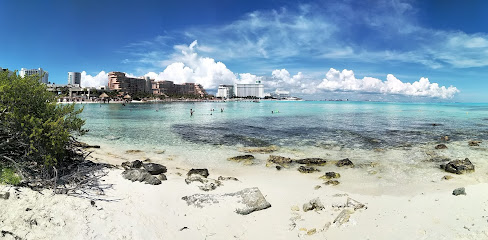
El Meco Archaeological Site
Discover the rich heritage of the Maya at El Meco Archaeological Site, a serene escape into history near Cancún, Mexico.
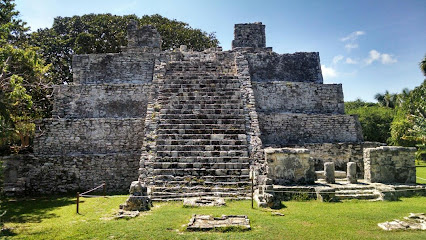
Malecón Tajamar
Experience the breathtaking beauty and vibrant culture at Malecón Tajamar, a scenic gem in Cancun's Hotel Zone.
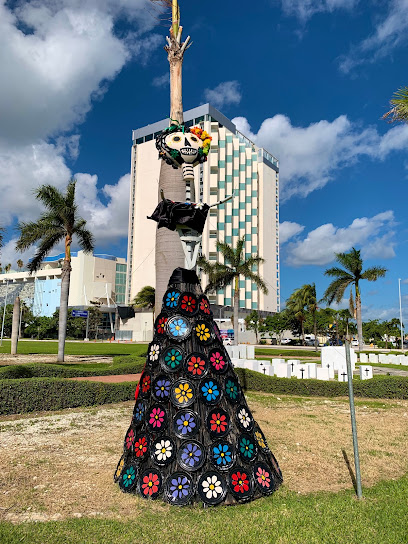
Jardín del Arte
Discover the tranquil beauty of Jardín del Arte in Cancún, where nature and art intertwine in a vibrant oasis perfect for relaxation.
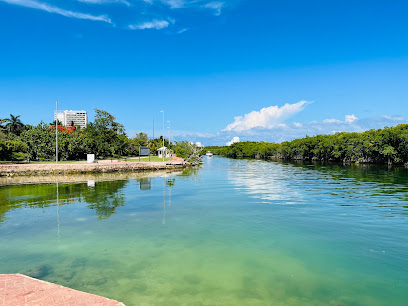
Parque del Artesano
Experience the beauty and culture of Cancun at Parque del Artesano, a serene park featuring artisan markets and lush landscapes perfect for relaxation.
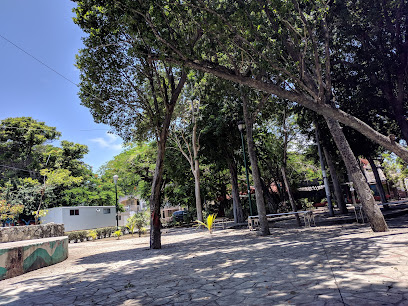
Cancun Wax Museum
Discover the Cancun Wax Museum, a unique tourist attraction featuring lifelike figures of celebrities and historical icons in the heart of Cancun's Hotel Zone.
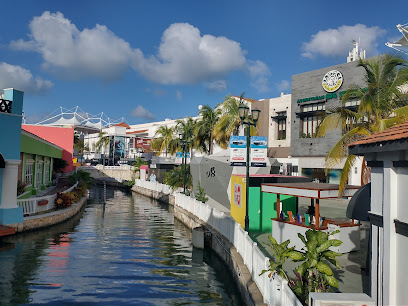
Unmissable attractions to see
Mercado 28
Explore Mercado 28 in Cancún, a vibrant market that offers delicious food, unique handicrafts, and a taste of authentic Mexican culture.
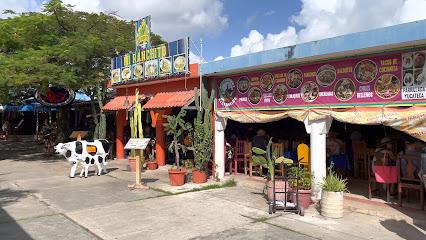
Parque de las Palapas
Immerse yourself in Cancun's local culture at Parque de las Palapas, where vibrant food, music, and community come together.
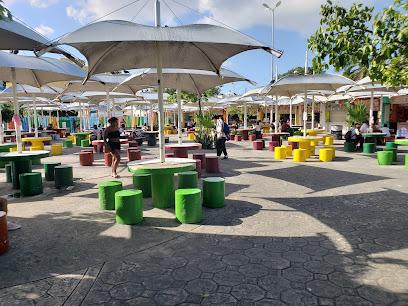
Playa Delfines
Experience the pristine beauty of Playa Delfines, Cancun's premier beach destination known for its golden sands and azure waters.
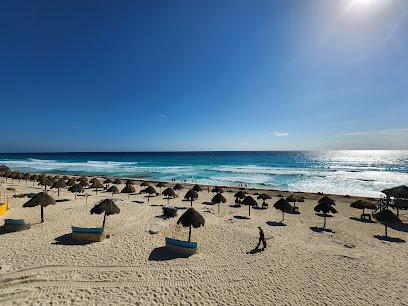
Playa Norte
Discover the stunning Playa Norte in Isla Mujeres, where soft sands and turquoise waters create a tropical paradise for every traveler.
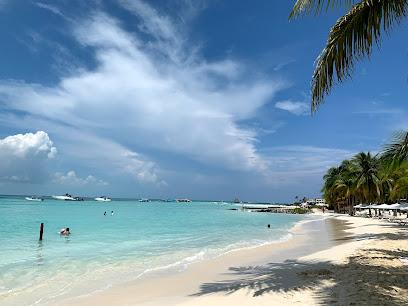
Playa Langosta
Discover the beauty of Playa Langosta in Cancun, a perfect public beach for relaxation, fun, and unforgettable sunsets on your tropical getaway.
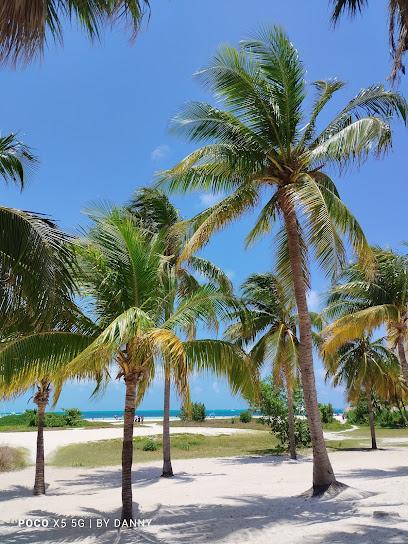
Punta Sur
Discover Punta Sur, a stunning beach and park in Isla Mujeres, where tranquility meets vibrant marine life and breathtaking Caribbean views.
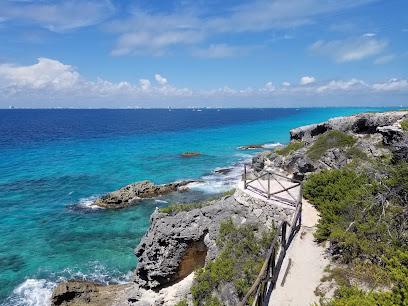
Xoximilco | Mexican Floating Fiesta in Cancun
Experience the magic of Mexican culture at Xoximilco, where vibrant gondola rides and delicious cuisine create unforgettable memories.
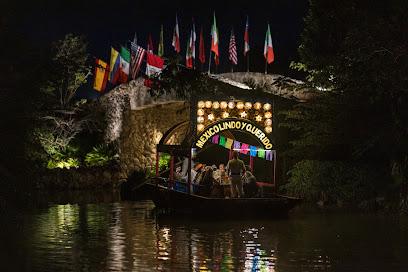
Forum By The Sea
Discover the vibrant shopping and entertainment experience at Forum By The Sea, Cancun's premier destination for fun, food, and relaxation by the beach.
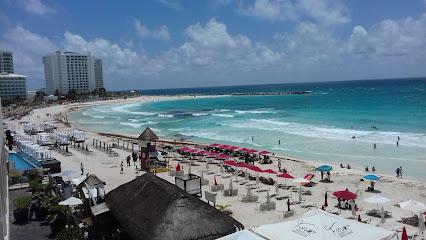
Ventura Park
Experience the thrill of Ventura Park in Cancún, where amusement rides, water slides, and family fun come together in a tropical paradise.
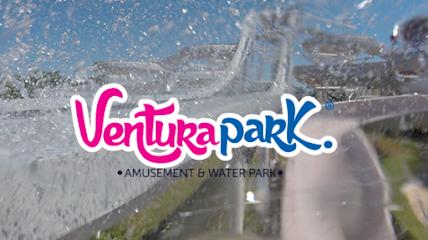
Ferris Wheel Cancun
Experience breathtaking views of Cancun from the iconic Ferris Wheel, a must-visit attraction for tourists seeking adventure and stunning panoramas.
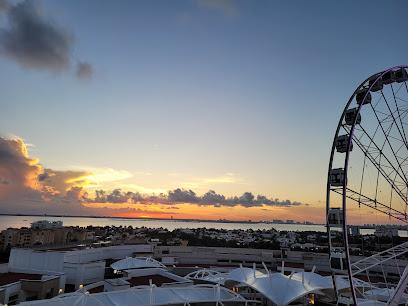
Ferris Wheel Cancun
Experience breathtaking views of Cancun from the iconic Ferris Wheel, a must-visit attraction for tourists seeking unforgettable panoramic vistas.
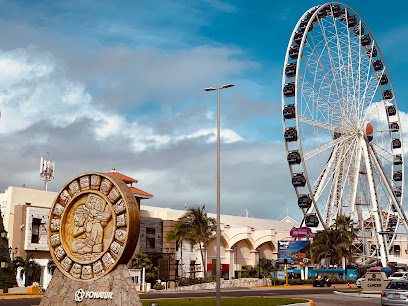
Museo Maya de Cancún y Zona Arqueológica de San Miguelito
Discover the ancient Mayan civilization at Museo Maya de Cancún, a must-visit museum showcasing rich history and artifacts in the heart of Cancun.
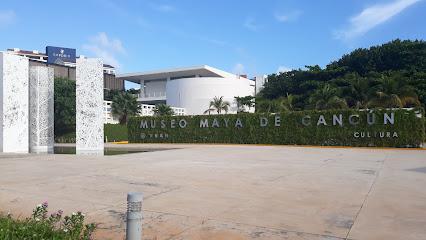
Interactive Aquarium Cancún
Discover marine wonders at Interactive Aquarium Cancún, where education meets adventure in a captivating underwater world.
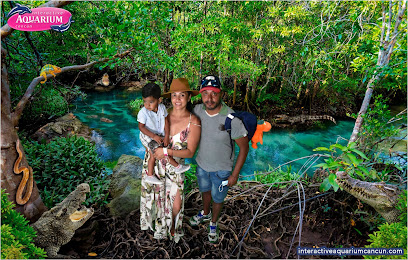
Playa Marlín
Discover Playa Marlín, a stunning beach in Cancún's Hotel Zone known for its crystal-clear waters, soft sands, and vibrant atmosphere perfect for relaxation and adventure.
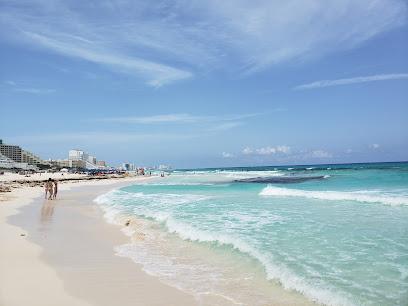
Captain Hook Cancun
Experience the thrill of pirate adventures and exquisite dining on the stunning waters of Cancun with Captain Hook Cancun's unique dinner cruise.
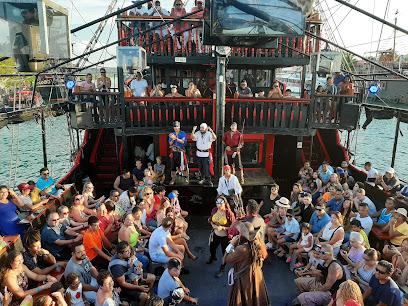
Essential places to dine
Bubba Gump Shrimp Co. Cancún
Experience the vibrant flavors of seafood at Bubba Gump Shrimp Co. Cancún - where fun meets flavor in an iconic setting.
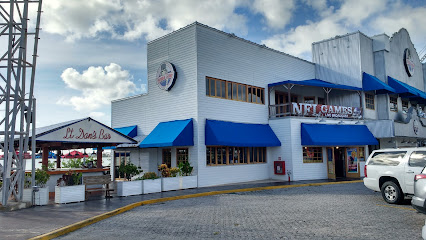
La Parrilla Cancún
Experience authentic Mexican flavors at La Parrilla Cancún - a vibrant restaurant known for its delicious cuisine and lively atmosphere.
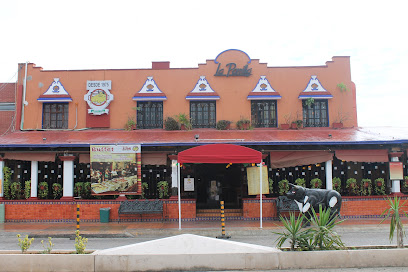
Harry's Steakhouse & Raw Bar | Cancun
Experience luxury dining at Harry's Steakhouse & Raw Bar in Cancun – where gourmet steak meets ocean-fresh seafood.
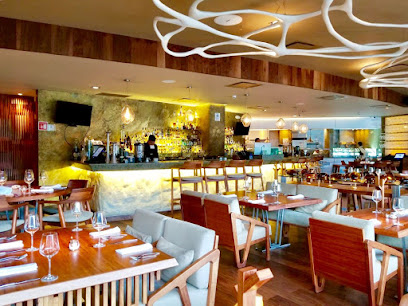
Fred's | The best seafood in Cancun
Discover Cancun’s premier seafood restaurant at Fred's—where fresh ocean flavors meet exceptional service in an unforgettable dining experience.
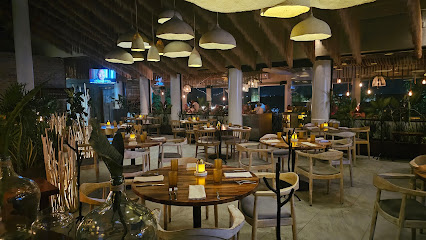
Restaurante Mextreme
Savor the essence of Mexico at Restaurante Mextreme—where vibrant flavors meet an unforgettable dining experience in Cancún.
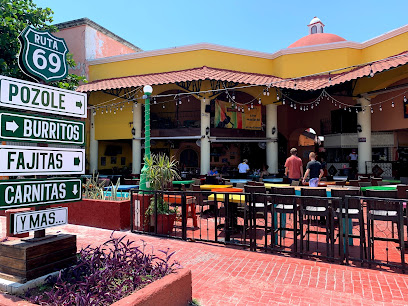
Ilios | Greek restaurant in Cancun
Experience authentic Greek cuisine at Ilios in Cancun's Hotel Zone—where vibrant flavors meet stunning views.
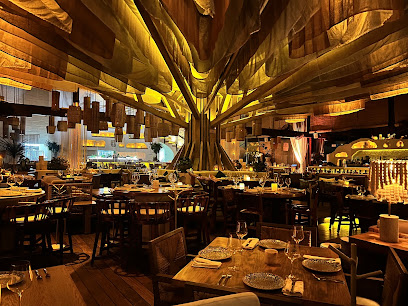
Porfirio's Cancún | Restaurante de comida mexicana
Experience authentic Mexican cuisine at Porfirio's Cancún – where tradition meets elegance in every bite.
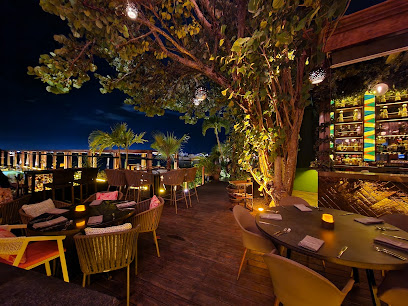
Lorenzillo's
Indulge in exquisite seafood and breathtaking views at Lorenzillo's, Cancun's premier destination for ocean-inspired dining.
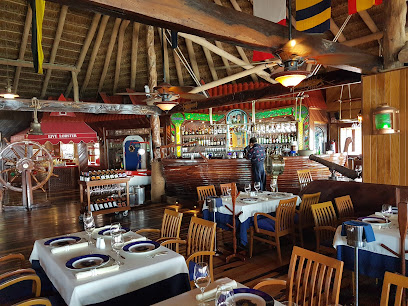
RosaNegra | Latin American Restaurant in Cancun
Experience the vibrant flavors of Latin America at RosaNegra in Cancun - where fine dining meets cultural celebration.
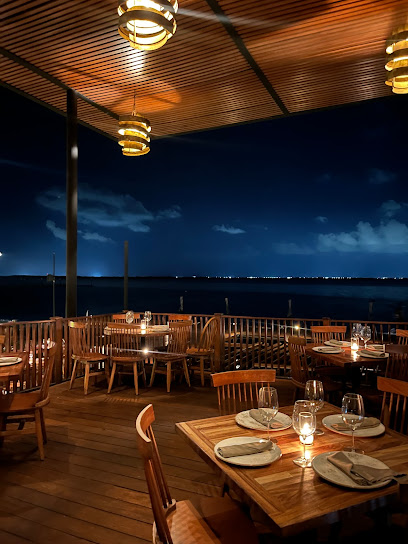
Puerto Madero Cancún
Experience culinary excellence at Puerto Madero Cancún with exquisite Argentinian dishes and stunning waterfront views in Mexico's vibrant Hotel Zone.
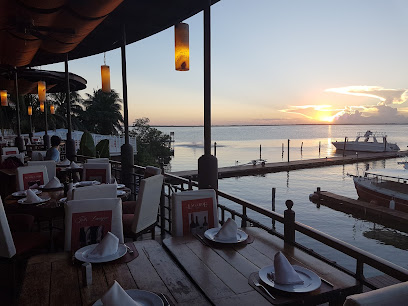
Restaurante Hacienda El Mortero
Experience the vibrant flavors of authentic Mexican cuisine at Restaurante Hacienda El Mortero in Cancún's lively Hotel Zone.
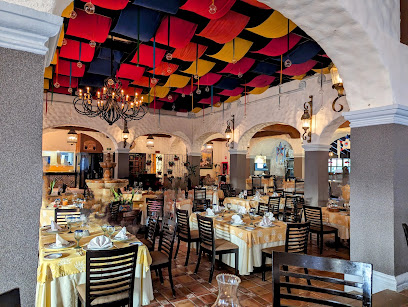
Cheester (CHSTR) PALAPAS
Experience authentic Italian and Mexican flavors at Cheester (CHSTR) PALAPAS in Cancún's vibrant Parque las Palapas.
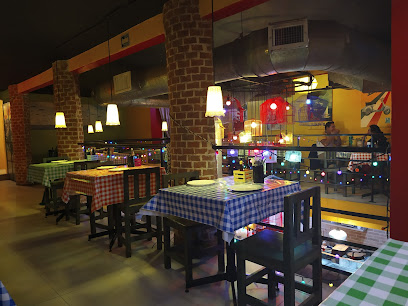
Navíos
Experience exquisite seafood with a Mexican twist at Navíos in Cancún's picturesque Hotel Zone.
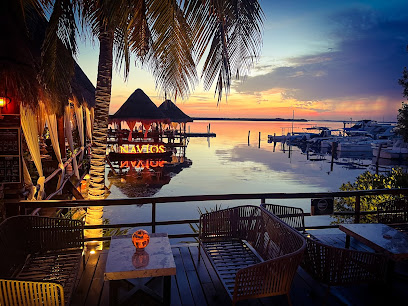
Cenacolo Puerto Cancún
Experience authentic Italian cuisine at Cenacolo Puerto Cancún, where exquisite flavors meet stunning marina views for an unforgettable dining experience.
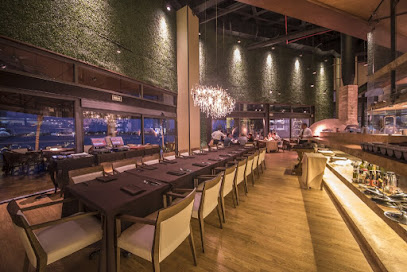
El Timón De Cancún
Discover delicious seafood and breathtaking ocean views at El Timón De Cancún - a culinary treasure in Mexico's paradise.
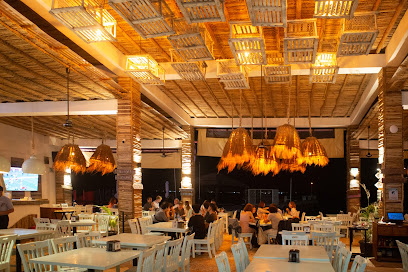
Markets, malls and hidden boutiques
Plaza Las Americas
Experience the ultimate shopping and dining destination at Plaza Las Americas in Cancún, where luxury and local culture meet.
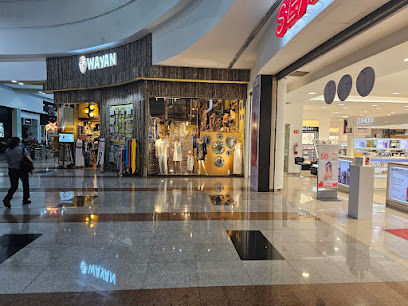
La Isla Cancún
Experience luxury shopping, exquisite dining, and vibrant entertainment at La Isla Cancún, the ultimate shopping mall in Mexico's stunning Hotel Zone.
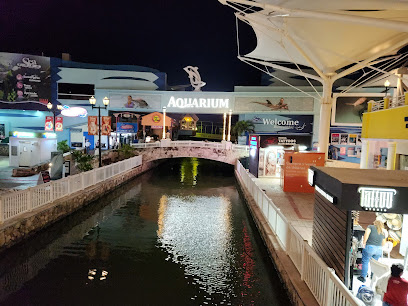
Marina Puerto Cancún
Explore the luxurious Marina Puerto Cancún for shopping, dining, and breathtaking marina views in the heart of Cancún.
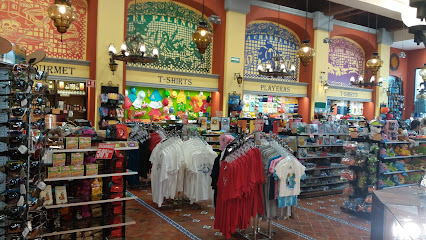
Las Plazas Outlet Cancun
Discover unbeatable deals and enjoy a delightful shopping experience at Las Plazas Outlet Cancun, where style meets savings in a vibrant setting.
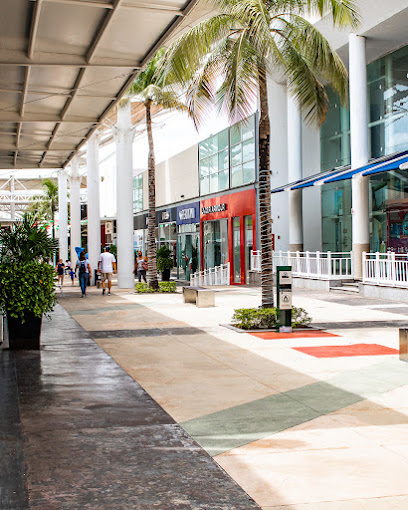
Forum By The Sea
Explore the vibrant Forum By The Sea in Cancún for shopping, dining, and entertainment by the stunning Caribbean coast.
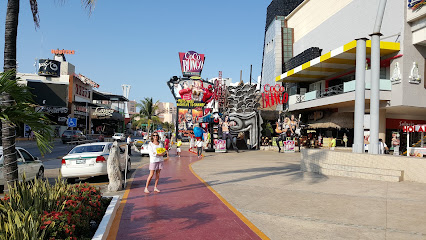
Kukulcan Plaza
Discover a vibrant shopping escape at Kukulcan Plaza in Cancún, featuring local treasures, international brands, and delightful dining options.
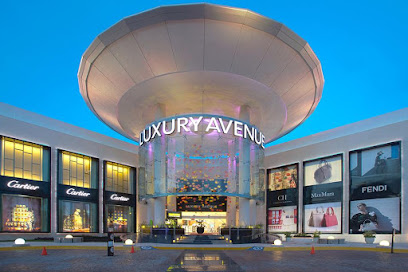
Shops Cancun
Experience the ultimate shopping and dining destination at Shops Cancun, a vibrant hub offering everything from fashion to fast food.
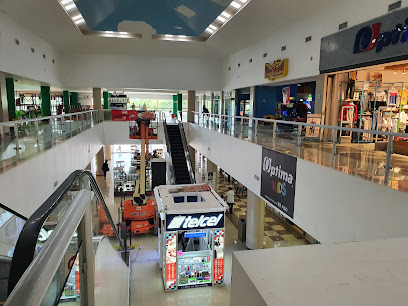
Mercado Coral Negro
Explore the vibrant Mercado Coral Negro in Cancún, where local handicrafts meet the heart of Mexican culture in a bustling market atmosphere.
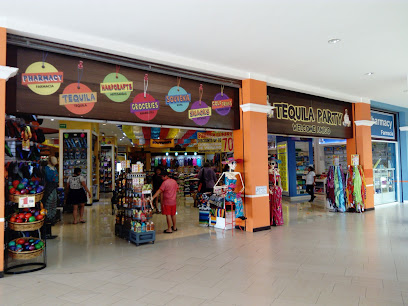
Plaza Malecon Americas
Discover the vibrant heart of shopping and entertainment at Plaza Malecon Americas in Cancun, featuring upscale shops, diverse dining, and lively entertainment.
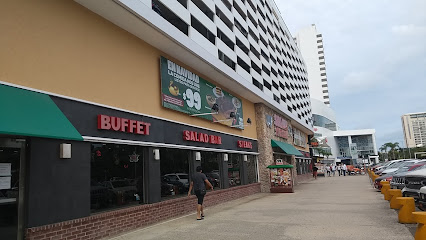
PLAZA PARTY
Experience the flavors of Mexico at Plaza Party, Cancún's premier destination for artisan chocolates and local delights.
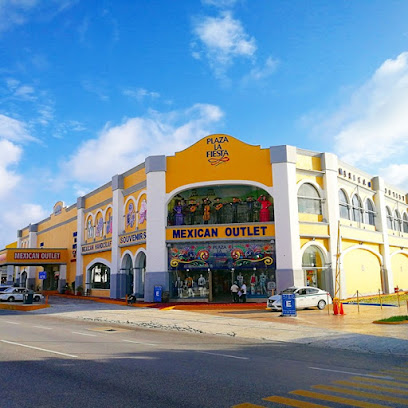
Plaza Caracol
Discover Plaza Caracol in Cancún for an unforgettable shopping and dining experience, where luxury meets local culture.
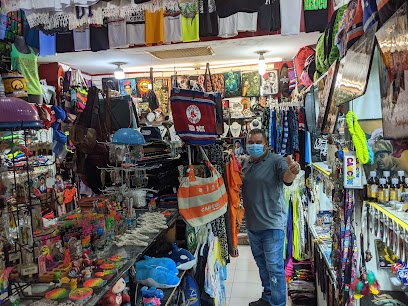
Luxury Avenue Mall Cancún
Experience luxury shopping at Luxury Avenue Mall Cancún, where designer boutiques and gourmet dining await in a stunning atmosphere.
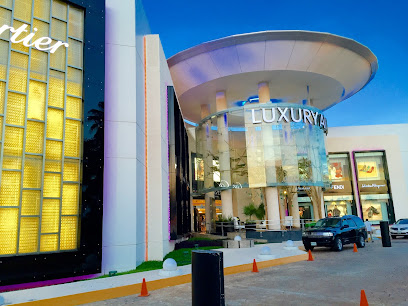
La Isla Cancún - PARADISE EXPERIENCE
Discover a premier shopping experience at La Isla Cancún, offering luxury brands, local crafts, and stunning views of the Caribbean.
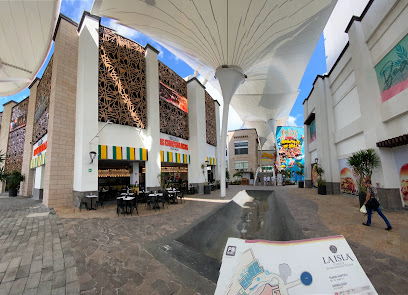
International Jewelry Center & Outlet Shopping Mall
Explore the International Jewelry Center & Outlet Shopping Mall in Cancún for unparalleled jewelry selections and unique treasures to cherish.
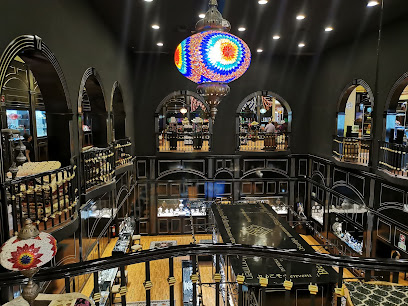
Plaza la Fiesta
Explore Plaza la Fiesta in Cancún for authentic Mexican handicrafts, vibrant souvenirs, and a taste of local culture in a lively shopping destination.
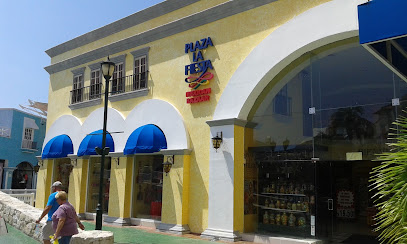
Essential bars & hidden hideouts
Coco Bongo
Experience the electrifying nightlife at Coco Bongo, Cancún's premier bar and night club, where breathtaking performances and vibrant energy await.
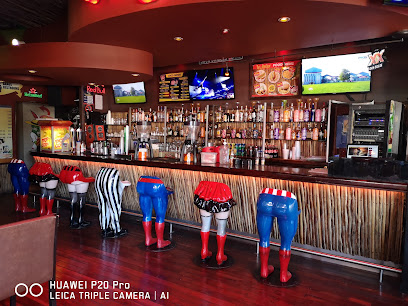
Monkey Business Cancún
Dive into the electrifying nightlife of Cancún at Monkey Business, where live music, karaoke, and a vibrant bar scene await you.
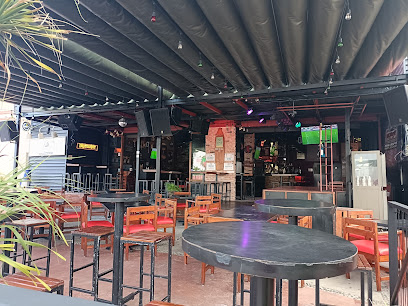
Route 666 Bikers Bar
Discover the vibrant atmosphere of Route 666 Bikers Bar in Cancun, where bikers unite for unforgettable nights filled with drinks, music, and camaraderie.
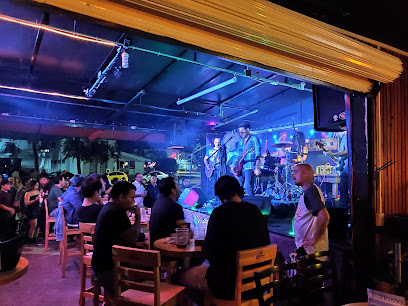
Congo Bar Cancun
Experience the vibrant nightlife at Congo Bar Cancun, where entertainment, dancing, and tropical cocktails create unforgettable memories.
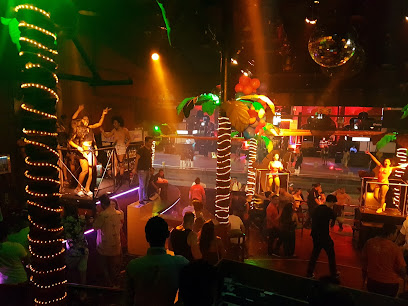
MUMMA Rooftop Bar
Experience breathtaking views and delicious cuisine at MUMMA Rooftop Bar, the perfect escape in Cancún's vibrant landscape.
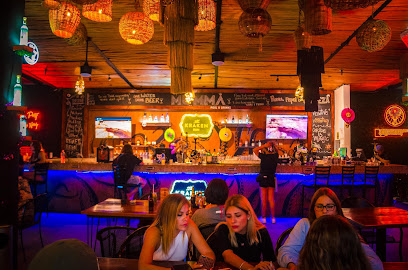
Hunter Bar Cancun
Discover the vibrant atmosphere of Hunter Bar Cancun, where relaxation meets entertainment with a pool, sports, and delicious dining options.
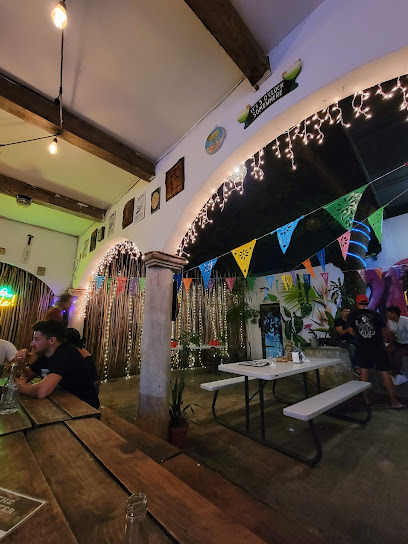
Sirenas Raw Bar
Dive into a culinary adventure at Sirenas Raw Bar, Cancun's top seafood destination with stunning ocean views and fresh flavors.
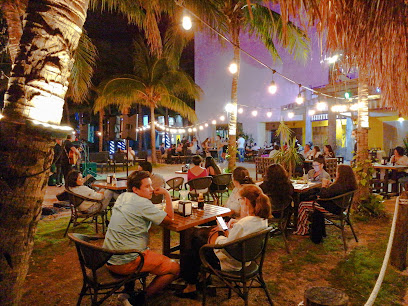
Barezzito Puerto Cancun
Experience the ultimate nightlife at Barezzito Puerto Cancun, where vibrant cocktails and exhilarating music create unforgettable nights.
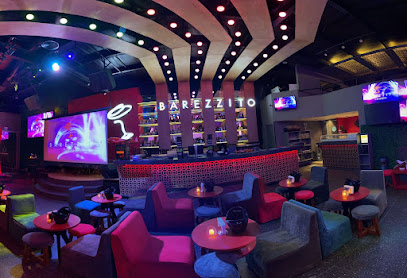
11:11 Club Cancún
Dive into the vibrant atmosphere of 11:11 Club Cancún, a premier gay bar known for its electrifying music, drag performances, and inclusive nightlife.
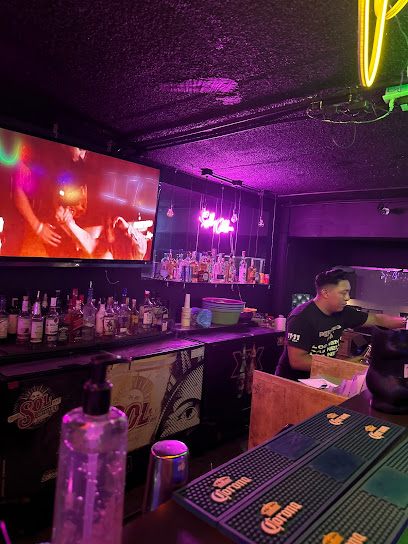
LA CHOPERÍA
Discover the lively nightlife at La Chopería, a vibrant bar and piano lounge in Cancún, perfect for music lovers and party-goers alike.
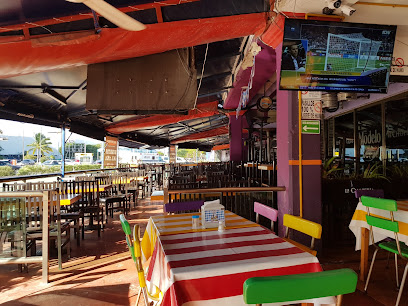
La Vaquita Cancun
Experience the vibrant nightlife at La Vaquita Cancun, where lively music and delicious cocktails create unforgettable party memories.
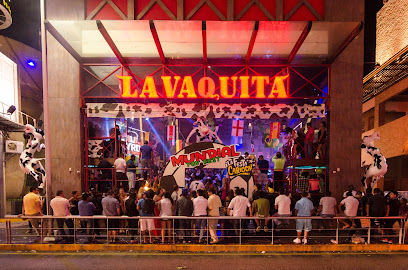
Laser Hot Bar Beer & Queer
Experience the electrifying nightlife at Laser Hot Bar Beer & Queer, the ultimate destination for drinks, performances, and vibrant fun in Cancún.
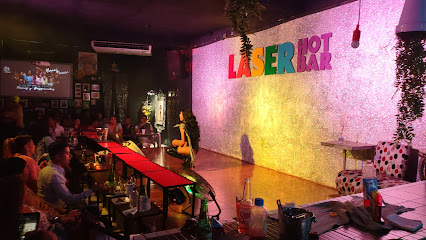
Los Aluxes Bar
Discover the vibrant Los Aluxes Bar in Cancun, where delicious grilled dishes meet refreshing drinks in a lively atmosphere.
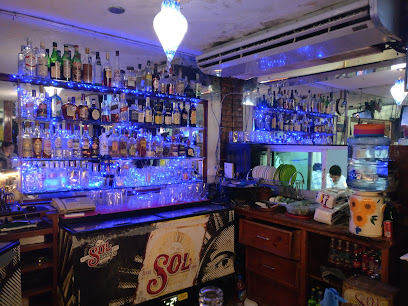
Confessions Cancun
Discover the vibrant nightlife of Confessions Cancun, a bar where eclectic music meets a lively atmosphere for an unforgettable night out.
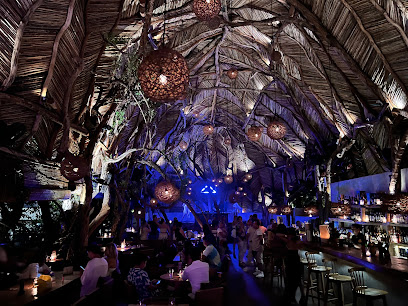
Local Phrases
-
- HelloHola
[OH-lah] - GoodbyeAdiós
[ah-DYOHSS] - YesSí
[SEE] - NoNo
[NOH] - Please/You're welcomePor favor/De nada
[pohr fah-BOHR/deh NAH-dah] - Thank youGracias
[GRAH-syahss] - Excuse me/SorryDisculpe/Perdón
[dee-SKUL-peh/pehr-DON] - How are you?¿Cómo estás?
[KOH-moh ehs-TAHS] - Fine. And you?Bien. ¿Y tú?
[BYEHN. ee too] - Do you speak English?¿Hablas inglés?
[AH-blahss een-GLEHS] - I don't understandNo entiendo
[NOH ehn-TYEHN-doh]
- HelloHola
-
- I'd like to see the menu, pleaseMe gustaría ver el menú, por favor
[meh goo-STAH-ree-ah behr ehl MEH-noo, pohr fah-BOHR] - I don't eat meatNo como carne
[NOH KOH-moh KAR-neh] - Cheers!¡Salud!
[sah-LOOD] - I would like to pay, pleaseMe gustaría pagar, por favor
[meh goo-STAH-ree-ah pah-GAHR, pohr fah-BOHR]
- I'd like to see the menu, pleaseMe gustaría ver el menú, por favor
-
- Help!¡Ayuda!
[ah-YOO-dah] - Go away!¡Vete!
[VEH-teh] - Call the Police!¡Llama a la policía!
[YAH-mah ah lah poh-lee-SEE-ah] - Call a doctor!¡Llama a un doctor!
[YAH-mah ah oon dohk-TOHR] - I'm lostEstoy perdido
[ehs-TOY pehr-DEE-doh] - I'm illEstoy enfermo
[ehs-TOY ehn-FEHR-moh]
- Help!¡Ayuda!
-
- I'd like to buy...Me gustaría comprar...
[meh goo-STAH-ree-ah kohm-PRAR] - I'm just lookingSolo estoy mirando
[SOH-loh ehs-TOY mee-RAHN-doh] - How much is it?¿Cuánto cuesta?
[KWAHN-toh KWEHS-tah] - That's too expensiveEsto es muy caro
[EH-stoh ehs moo-ee KAH-roh] - Can you lower the price?¿Puedes bajar el precio?
[PWEH-dehs BAH-hahr ehl PREE-syoh]
- I'd like to buy...Me gustaría comprar...
-
- What time is it?¿Qué hora es?
[keh OH-rah ehs] - It's one o'clockEs la una
[ehs lah OO-nah] - Half past (10)Y media (10)
[ee MEH-dee-ah (DEE-ehss)] - MorningMañana
[mah-NYAH-nah] - AfternoonTarde
[TAHR-deh] - EveningNoche
[NOH-cheh] - YesterdayAyer
[ah-YEHR] - TodayHoy
[OY] - TomorrowMañana
[mah-NYAH-nah] - 1Uno
[OO-noh] - 2Dos
[DOHS] - 3Tres
[TREHS] - 4Cuatro
[KWAH-troh] - 5Cinco
[SEEN-koh] - 6Seis
[SAYSS] - 7Siete
[SYEH-teh] - 8Ocho
[OH-choh] - 9Nueve
[NWEH-veh] - 10Diez
[DYESS]
- What time is it?¿Qué hora es?
-
- Where's a/the...?¿Dónde está...?
[DOHN-deh ehs-TAH] - What's the address?¿Cuál es la dirección?
[KWAHL ehs lah dee-rehk-SYOHN] - Can you show me (on the map)?¿Me puedes mostrar (en el mapa)?
[meh PWEH-dehs mohs-TRAR (ehn ehl MAH-pah)] - When's the next (bus)?¿Cuándo es el próximo (autobús)?
[KWAHN-doh ehs ehl PROH-ksee-moh (ow-toh-BOOS)] - A ticket (to ....)Un boleto (a ....)
[oon boh-LEH-toh (ah)]
- Where's a/the...?¿Dónde está...?
History of Cancun
-
Long before Cancun became a world-renowned tourist destination, it was inhabited by the ancient Maya civilization. The region, known for its lush jungle and stunning coastline, held significant importance for the Maya. They established several settlements and constructed impressive structures, such as the city of El Meco, which served as a coastal trading hub. The Maya left behind a rich legacy of architecture, astronomy, and culture, elements of which can still be seen in the ruins scattered around the Yucatan Peninsula.
-
The arrival of the Spanish in the early 16th century marked a dramatic shift in the history of Cancun and the Yucatan Peninsula. Spanish conquistadors, led by Francisco de Montejo, sought to conquer the region and convert its inhabitants to Christianity. Although the Spanish faced resistance from the Maya, they eventually established control over the area. The conquest led to significant changes, including the introduction of new languages, religions, and governance structures, as well as the decline of the Maya civilization.
-
Following Mexico's independence from Spain in 1821, the Yucatan Peninsula experienced a period of relative isolation and economic stagnation. The region was largely overlooked by the central Mexican government, which focused on developing other parts of the country. Despite this, the local Maya population continued to practice their traditional customs and maintain their cultural heritage. The late 19th and early 20th centuries saw sporadic development, with the establishment of small fishing villages and agricultural communities along the coast, including what is now Cancun.
-
The transformation of Cancun from a sleepy fishing village into a bustling tourist hotspot began in the late 1960s. The Mexican government, recognizing the potential for tourism development, initiated the Cancun Project in 1969. This ambitious plan aimed to create a world-class resort destination to attract international tourists and boost the national economy. The project involved extensive infrastructure development, including the construction of hotels, roads, and an international airport. By the early 1970s, Cancun had begun to welcome its first visitors, setting the stage for its rapid growth and success.
-
Today, Cancun is a vibrant city that attracts millions of visitors each year. Its stunning beaches, luxury resorts, and vibrant nightlife have made it one of the most popular tourist destinations in the world. The city continues to evolve, incorporating modern amenities and attractions while preserving its rich cultural heritage. Visitors can explore ancient Maya ruins, enjoy world-class dining and entertainment, and experience the warm hospitality of the local people. Cancun's unique blend of history and modernity makes it a truly unforgettable destination.
Cancun Essentials
-
Cancun is served by Cancun International Airport (CUN), which is one of the busiest airports in the Caribbean. Numerous international airlines offer direct flights to Cancun from major cities around the world. From the airport, you can take a taxi, private shuttle, or bus to reach your accommodation. The ADO bus service operates routes between the airport and downtown Cancun, as well as to the Hotel Zone and other nearby destinations.
-
Getting around Cancun is relatively easy. The Hotel Zone is well-served by public buses, which are affordable and frequent. Taxis are also available but agree on the fare before starting the ride. For more flexibility, consider renting a car, but be aware of local driving conditions and traffic laws. Biking is another option, particularly in the Hotel Zone, where bike paths are available. Additionally, ferries connect Cancun to nearby islands like Isla Mujeres.
-
The official currency in Mexico is the Mexican Peso (MXN). Credit and debit cards are widely accepted in hotels, restaurants, and shops, but it's advisable to carry some cash for small purchases and tips. ATMs are plentiful, especially in the Hotel Zone and downtown Cancun. Currency exchange booths are also available, but it's often better to exchange money at banks for better rates.
-
Cancun is generally safe for tourists, but like any tourist destination, it has areas where caution is advised. The Hotel Zone and well-populated tourist areas are generally safe. However, avoid wandering into less touristy areas, particularly at night. Petty theft can occur, so keep an eye on your belongings. Be cautious in downtown Cancun, especially in neighborhoods like Colonia Lopez Portillo and Colonia Super Manzanas, where higher crime rates have been reported.
-
In case of emergency, dial 911 for police, fire, or medical assistance. Major hospitals in Cancun include Hospiten and Galenia Hospital, which offer services in English. It is highly recommended to have travel insurance that covers medical emergencies. Pharmacies are widely available for minor health issues. For consular assistance, contact your country’s embassy or consulate in Mexico.
-
Fashion: Do wear lightweight and breathable clothing suitable for the tropical climate. Avoid overly revealing outfits when visiting churches or local communities. Religion: Do show respect when visiting religious sites; remove hats and avoid loud conversations. Public Transport: Do use public buses for an economical way to travel; they are frequent and safe. Don't forget to carry small change for bus fares. Greetings: Do greet people with a friendly 'Hola' or 'Buenos días.' Handshakes are common. Eating & Drinking: Do try local cuisine and street food, but ensure it's from a reputable vendor. Don't drink tap water; always opt for bottled water.
-
To experience Cancun like a local, visit the Mercado 28 in downtown Cancun for authentic souvenirs and local food. Explore the less touristy beaches, such as Playa Delfines, which offer stunning views and a more relaxed atmosphere. Engage with locals, who are generally friendly and willing to share tips about hidden gems. Don't miss out on local festivals and events, which provide insight into Cancun's vibrant culture and traditions.
Trending Landmark in Cancun
-
Parque de las Palapas
-
Museo Maya de Cancún y Zona Arqueológica de San Miguelito
-
Interactive Aquarium Cancún
-
Captain Hook Cancun
-
Parque Ecológico Kabah
-
El Rey Archaeological Zone
-
Torre Escénica del Embarcadero de Cancún
-
Parque El Crucero
-
Catedral de Cancún (La Santa Cruz y de la Santísima Trinidad)
-
Punta Cancun LightHouse
-
El Meco Archaeological Site
-
Malecón Tajamar
-
Jardín del Arte
-
Parque del Artesano
-
Cancun Wax Museum
Nearby Cities to Cancun
-
Things To Do in Playa del Carmen
-
Things To Do in Cozumel
-
Things To Do in Tulum
-
Things To Do in Corozal Town
-
Things To Do in San Pedro
-
Things To Do in Orange Walk Town
-
Things To Do in Caye Caulker
-
Things To Do in Campeche
-
Things To Do in Belize City
-
Things To Do in Dangriga
-
Things To Do in Hopkins
-
Things To Do in San Ignacio
-
Things To Do in Tikal
-
Things To Do in Roatán
-
Things To Do in Placencia














